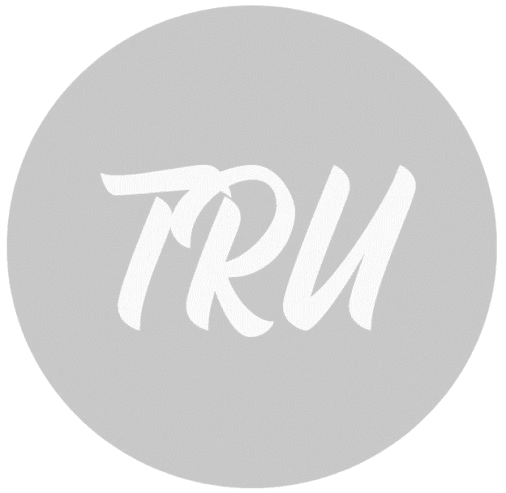What is Media Process Outsourcing (MPO)?
Media Process Outsourcing (MPO) encompasses the practice of delegating core media-related functions to external service providers. This approach allows organizations to optimize their media strategies by accessing specialized expertise and reducing operational costs. MPO is a subset of business process outsourcing (BPO), which broadly includes transferring various business functions to third-party vendors. However, MPO is distinctly focused on media-centric services, which are crucial in today’s digital landscape.
Typical services included in MPO range from content creation to editing, distribution, and analytical reporting. For instance, organizations may outsource the creation of marketing videos, social media content, or blog posts to skilled professionals who can generate high-quality material tailored to specific target audiences. Furthermore, editing services can enhance existing content to ensure it aligns with brand guidelines and communication objectives. The distribution of media content across various platforms, including social media, websites, and email campaigns, is another area where MPO plays a pivotal role in establishing a cohesive media presence.
An essential aspect of MPO is its strategic function in helping companies amplify their media initiatives efficiently. By leveraging MPO, businesses can focus on their core competencies while entrusting media tasks to seasoned experts, such as those found in groups like Tru29 and other top BPO providers in Ortigas. This arrangement fosters collaboration that enables companies to incorporate innovative solutions and enhance their media reach.
Moreover, the distinction between MPO and traditional outsourcing lies in the specificity of services and the necessity for creativity and strategic thinking inherent in media processes. While general outsourcing can cover a wide array of functions, MPO is tailored to meet the unique demands of media production and management. These characteristics highlight the significant advantages and benefits that MPO offers, allowing organizations to remain competitive in a rapidly evolving marketplace.
Key Components of Media Process Outsourcing
Media Process Outsourcing (MPO) encompasses a range of services and components essential for effective media management and engagement in today’s digital landscape. The multifaceted nature of MPO allows organizations to tap into specialized skills and technologies aimed at optimizing their media outputs. One of the primary components of MPO is content strategy development. This involves crafting a comprehensive plan that outlines the objectives, target audience, messaging, and delivery channels for media content. A well-defined content strategy is crucial, as it sets the foundation for all subsequent media production efforts.
Another significant aspect of MPO is the production process, which includes essential functions such as video and audio editing. These services are vital as they transform raw media footage into polished content that is ready for distribution. Professional editing enhances the quality of media, ensuring that it captivates and retains audience attention. Furthermore, content creation services, such as graphic design and animation, play a complementary role in enriching the viewer’s experience.
Following the production phase, the distribution of media emerges as a critical element within MPO. This component involves disseminating content across various platforms, including social media, websites, and streaming services. Effective distribution strategies ensure that the content reaches its intended audience while maximizing engagement. These components, when effectively integrated, yield numerous advantages and benefits for organizations, such as cost efficiency, enhanced focus on core competencies, and improved audience engagement.
By leveraging the expertise of top outsourcing service providers, including those recognized as the top BPO in Ortigas, companies can achieve a streamlined media process outsourcing strategy that fulfills their unique media requirements while fostering growth in an increasingly competitive environment.
Advantages of Media Process Outsourcing
Media Process Outsourcing (MPO) offers an array of advantages and benefits that significant enhance operational efficiencies for companies seeking to optimize their media-related workflows. One of the foremost advantages is cost efficiency. By outsourcing media processes, organizations can significantly reduce operational expenses. Specialized firms, such as those operating under tru29, often possess robust infrastructures and methodologies, allowing them to deliver services at a fraction of the cost compared to in-house solutions.
Another key benefit is access to specialized expertise. MPO providers typically employ skilled professionals with vast experience in media production, project management, and analytics. This specialized knowledge is instrumental in ensuring that companies can leverage cutting-edge trends and technologies without the burden of extensive training or hiring internally. The top BPO in Ortigas exemplifies this strategy by combining expertise with innovative processes to enhance quality in media projects.
Furthermore, outsourcing media processes can lead to increased focus on core business functions. By delegating non-core activities to external providers, companies can channel their resources and attention toward strategic initiatives that drive growth and profitability. This shift enables businesses to remain agile and responsive to market demands, increasing their competitiveness within their industry. Additionally, MPO providers can significantly improve turnaround times for media projects, enabling quicker response to changes in consumer behavior or emerging trends.
Lastly, MPO presents enhanced scalability for businesses. As market demands fluctuate, leveraging outsourcing allows for easy adjustments to project size and scope without the risks associated with maintaining a larger internal team. Companies can quickly scale up for large campaigns or dial down during quieter periods, ensuring operational agility and efficiency. The combination of these advantages positions companies to navigate a dynamic marketplace effectively.
Implementing Media Process Outsourcing in Your Company
Implementing Media Process Outsourcing (MPO) can significantly enhance the efficiency and effectiveness of media operations within a company. To begin, organizations must first assess their specific needs and goals regarding media processes. This crucial step entails evaluating existing workflows, identifying bottlenecks, and determining areas where outsourcing could yield substantial advantages and benefits. By recognizing these gaps, companies can tailor their outsourcing strategy to address specific media-related challenges and enhance overall performance.
Once the needs assessment is complete, the next phase involves selecting the right MPO partner. This decision is fundamental to the success of the outsourcing initiative. Companies should seek providers that are recognized as leaders in their field, such as Tru29, known for its specialized expertise and positioning as a top Business Process Outsourcing (BPO) entity in Ortigas. By carefully evaluating potential partners based on their experience, service capabilities, and alignment with the company’s objectives, organizations can ensure a seamless collaboration that drives value.
Developing a strategic approach to outsourcing media processes is also essential. Companies should establish clear communication channels and set comprehensive expectations with their MPO providers. This ensures that both parties are aligned on project goals, milestones, and deliverables. Workflow integration is another critical aspect to consider, as it involves embedding the outsourced processes within the existing operational structure to achieve a cohesive function. Additionally, implementing robust quality control mechanisms will safeguard the integrity of media outputs, allowing for consistent quality across all platforms.
In conclusion, effectively harnessing the advantages and benefits of media process outsourcing involves a methodical approach. By conducting a thorough needs assessment, selecting the right partners, and integrating workflows alongside quality measures, organizations can successfully leverage MPO to enhance their media operations.



